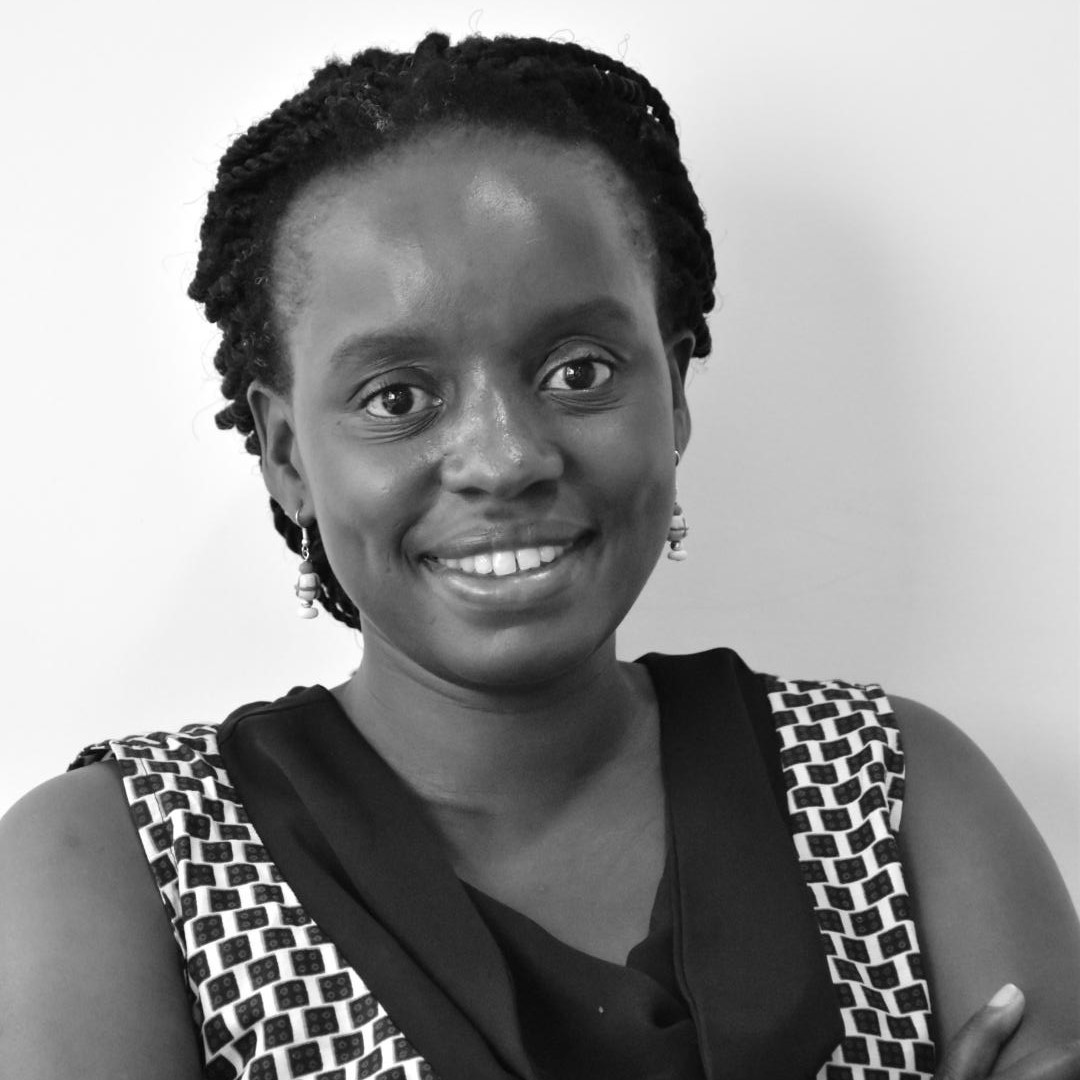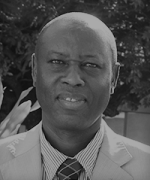
The Initiative to Develop African Research Leaders (IDeAL) is a high-quality training programme designed to develop outstanding young African scientists into world-class research leaders. It is hosted by KEMRI – Wellcome Trust Research Programme in Kenya. IDeAL is available to young researchers, from Undergraduate Research Attachments to Postdoctoral Fellowships, with the aim of keeping scientists at African institutions through a defined programme of recruitment, supervision and mentorship with the goal of establishing unique career paths for all students and fellows.
IDeAL is one of the 11 initiatives under DELTAS Africa (Developing Excellence in Leadership, Training and Science in Africa) funded by the African Academy of Sciences (AAS)’s and Alliance for Accelerating Excellence in Science in Africa (AESA) and supported by the New Partnership for Africa’s Development Planning and Coordinating Agency (NEPAD Agency) with funding from the Wellcome Trust and the United Kingdom government.
IDeAL Team comprises over 200 persons including postdoctoral fellows, students, interns, mentors, supervisors, and the secretariat.
For more details on the schemes supported under IDeAL, visit the Programmes Page.
IDeAL builds on previous capacity strengthening activities at the KEMRI – Wellcome Trust Research Programme. As illustrated in figure below capacity building at the Programme has gone through different phases. During the earliest phase, 1989-2008, the emphasis was on building core structures to support research and training including high quality laboratory, clinical, field and ICT infrastructure. As these core structures expanded there was a gradual increase in the number of local researchers training at Masters and PhD levels, albeit on an ad hoc basis. It eventually became clear that there was need to develop a coherent framework to manage and scale up research training activities at the Programme. This was achieved through the awarding of a Strategic Award amounting to 12 Million Pounds by the Wellcome Trust. The award supported research training activities from 2008 to 2015.

As a result of the Award capacity building activities in the Programme expanded markedly. In addition, the award facilitated the centralisation and harmonization of capacity building management by providing a secure financial base that enabled long term planning of career paths.
In brief, between 2008 and 2015, 52 students were support to undertake PhDs and also received a further one year Postdoctoral support. 32 of these are Postdoctoral Reseachers at KWTRP and elsewhere while 8 are lecturers in local Universities. 5 have already received Wellcome Trust Training Fellowships. 88 people were supported for Masters training either directly or through support leading to the successful application for external Masters Fellowships (e.g. the Wellcome Trust Masters Fellowship). We have provided internships to 172 recent Kenyan graduates. Over 30 of who have now progressed through the research training to Postdoctoral level. Majority of the rest are either research assistants or Masters students elsewhere.
Importantly, work supported by the SA has contributed to development of a number of health policies and practice guidelines in Kenya and Globally particularly for prevention and treatment of early childhood illnesses. In addition, it has been presented in over 200 conferences and resulted in over 300 peer-reviewed publications (>150 first author papers – >50 in journals with an Impact Factor of >4, and > 150 non-first author papers – >30 in journals with an Impact Factor of >4.
Vision
African-led research solving African and global health issues
Mission
To generate a critical mass of African Research Leaders
Objective
Attract – To attract young African to research
Train – To provide high quality research training
Retain – To support the retention of African researchers in the Continent
Nurture – To nurture emerging African research leaders

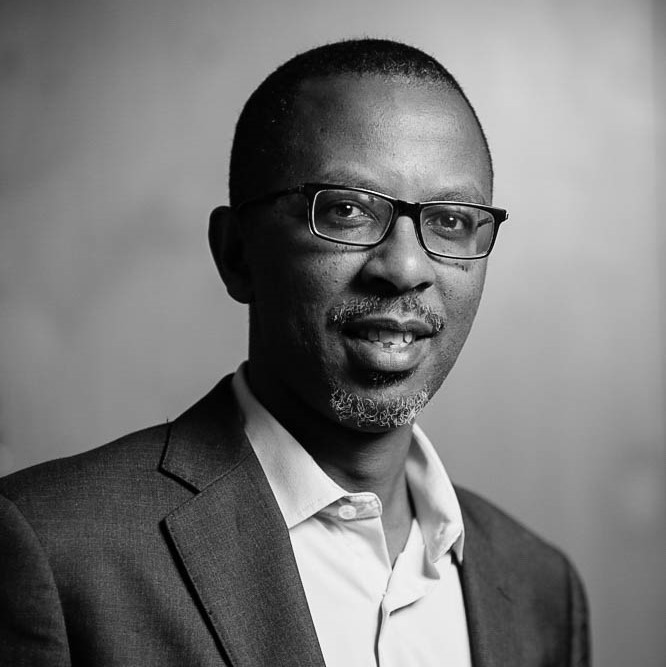
Prof. Sam Kinyanjui
 Email : SKMuchina@kemri-wellcome.org
Email : SKMuchina@kemri-wellcome.org Prof. Sam Kinyanjui is the Head of Training and Capacity Building at the KEMRI-Wellcome Trust Programme in Kenya and the Director for the Initiative to Develop African Research Leaders (IDeAL). Prior to the current position, he spent 16 years doing research on the immunology and molecular biology of malaria parasites. During this period he developed a strong interest in capacity building for health research in Africa.
As the Head of Training and Capacity Building at the KWTRP in Kenya, he provides scientific and strategic guidance for academic training towards research leadership. His key achievement has been the development and implementation of a comprehensive research career framework for attracting, training and retaining African research leaders. Through the framework, Prof. Kinyanjui has overseen the training of over 200 graduate interns, the majority of who have taken up a research career after the internship. This scheme has now been developed into a nationally accredited Postgraduate Diploma in Health Research Methods. He has also overseen over 100 Masters and over 70 PhD training since 2008. In 2015 Prof. Kinyanjui was awarded a further 8 million pounds by the Wellcome Trust/DIFD to build on this work through the Initiative to Develop African Research Leaders (IDeAL)
Regionally, Prof. Kinyanjui is involved in advocacy for increased commitment to building research capacity in Africa by both African governments and funding agencies. In 2006 he worked at the African Union Headquarter promoting health research agenda within the Union. He also sits on the advisory boards of several African capacity building initiatives including MUIIplus, SSACAB, SANTHE and the TDR Global Community Adhoc Workgroup.

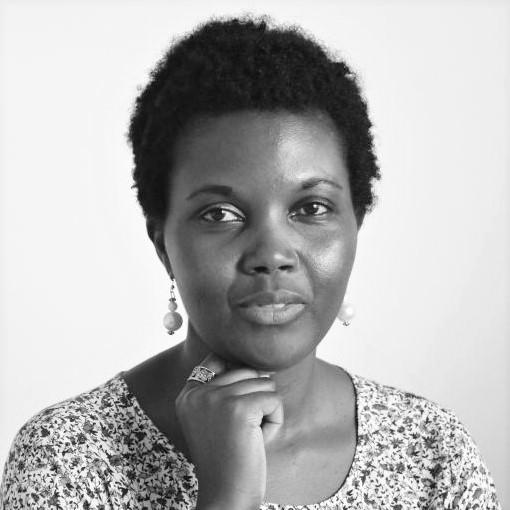
Dr. Dorcas Mbuvi

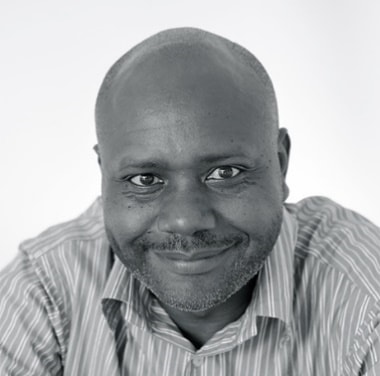
Dr. Francis Ndung’u
 Email : FNdungu@kemri-wellcome.org
Email : FNdungu@kemri-wellcome.org Francis did his earlier education in Nairobi, Kenya, before proceeding to the National Institute for Medical Research, London, UK, where he did his PHD in immunology with Dr Jean Langhorne and Prof Kevin Marsh. He was awarded the PHD in 2005, after which he took up a post-doctoral training position at the same institute, and was successful at implementing a new programme of research in quantifying antigen-specific memory B cells in a mouse model of malaria. He moved back to Kenya in 2008 as post-doctoral researcher, with the aim of obtaining own funding to start and build a research group. His main areas of interest are: (i) immunological memory to malaria in historically infected individuals, and, (ii) hosts factors responsible for increased susceptibility to P falciparum malaria in a small proportion of children that experience excessively more malaria than expected.

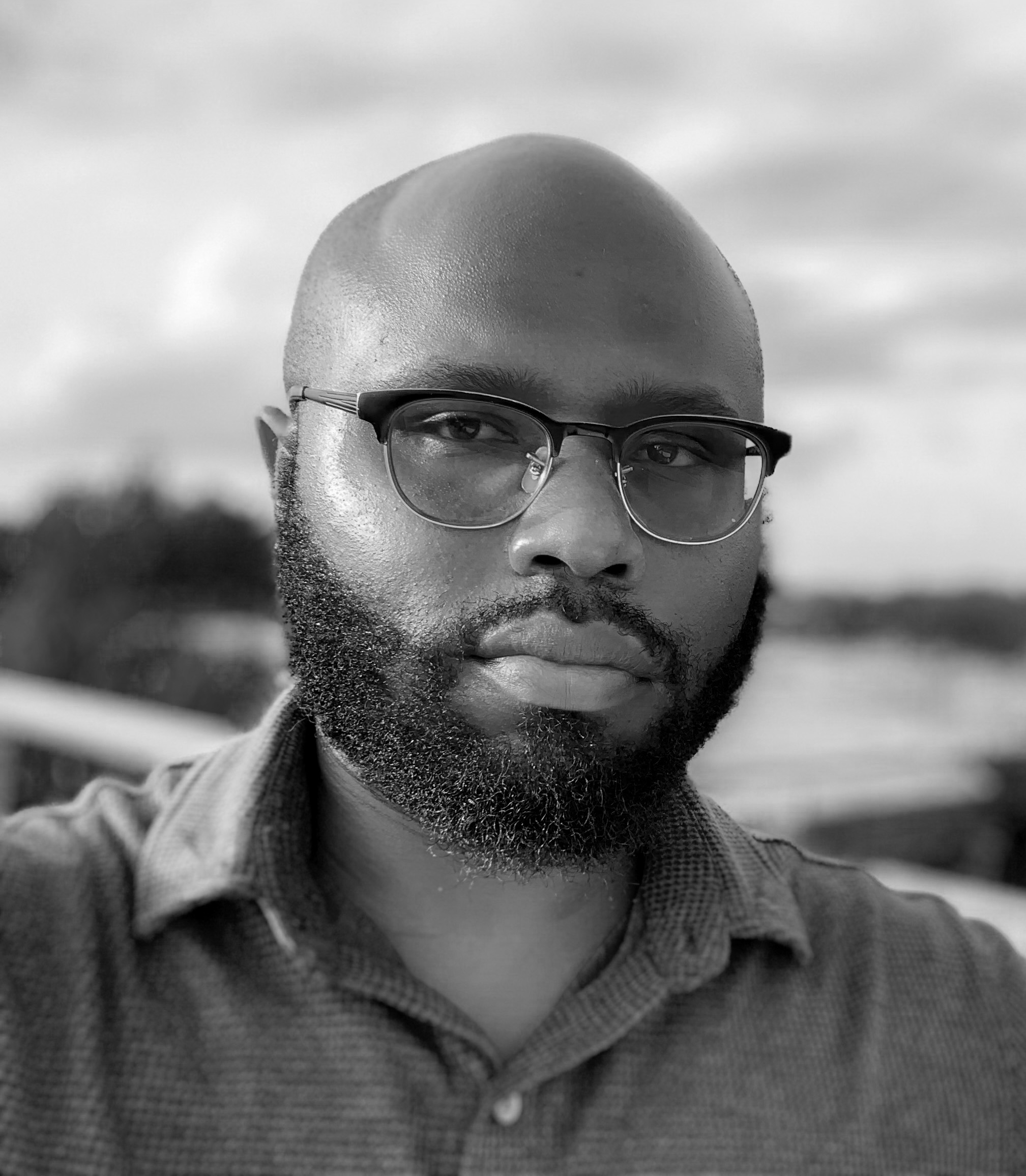
Mwendwa Mutuku
 Email : smutuku@kemri-wellcome.org
Email : smutuku@kemri-wellcome.org Mutuku holds a B.A Degree in Journalism and Media Studies from the University of Nairobi and a member of the Public Relations Society of Kenya. He has previously worked for local and international organisations such as the Africa Union/United Nations Information Support Team in Somalia, Kenya’s Ministry of Water and Irrigation and FilmAid International.
He is a passionate communication professional who has managed media and public relations for national and intergovernmental agencies and non-profits and participated in successful communications and media campaigns. He is an all-rounder with nine years of experience in public relations; digital strategy development and execution; branding and marketing; graphic design and production of multimedia content. He believes in channelling the power of media to impact lives and influence positive social change on behalf of multilaterals, socially-oriented non-profits, and private-sector creative agencies. He is highly skilled in conceptual and visual storytelling.

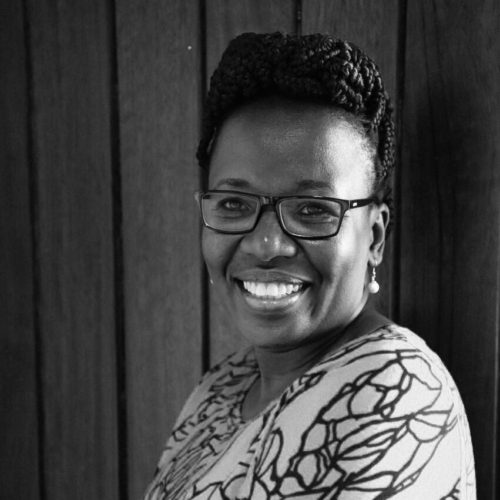
Liz Igombo-Murabu
 Email : LMurabu@kemri-wellcome.org
Email : LMurabu@kemri-wellcome.org Liz Igombo-Murabu is the Students’ Administrator for IDeAL and KEMRI-Wellcome Trust Research Programme. She has spent the last 10 years playing a vital role in ensuring the smooth and efficient management of the training of nearly 150 academic trainees ranging from school leavers and undergraduates attachees, Postgraduate Diploma, Masters, and PhD students and postdoctoral fellows funded under IDeAL.
She joined the KEMRI-Wellcome Trust Research Programme in 1996 and has served in different capacities within the Programme. She has been the training administrator since 2008 supporting both academic training and continuing professional development of over 800 staff. She also holds a HND in Executive Assistance, a Diploma in Administrative duties from Cambridge International College, UK, Certificate on Leadership and Management in Health Systems with the University of Washington and a Certificate in Computer Operations and Business Applications from The Mombasa Polytechnic. She is currently pursuing a Bachelor degree in Executive Business Administration Programme with specialization in Management and Administration with Cambridge International College, UK.

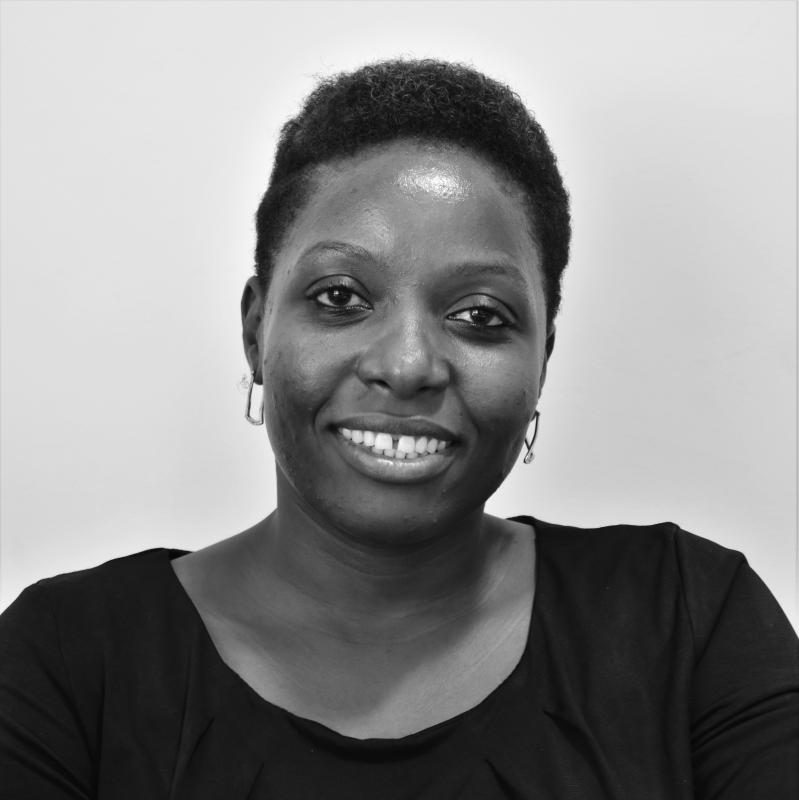
Rita Baya
 Email : RBaya@kemri-wellcome.org
Email : RBaya@kemri-wellcome.org Rita Baya joined KEMRI Wellcome Trust Research Programme in June 2012 and currently holds the position of an Administrative Assistant. She is tasked with Office management, Interface administrative functions of various projects, Travel Management from Reservations, transfers, travel authorization documents, Itinerary coordination, foreign & local travels, Organize & coordinate logistics for local and international meetings, trainings, seminars, workshops, conferences. Documentation i.e. reports, filing and documents archiving. She has over 5 years’ experience in Administration and holds a Bachelor degree in Administration from Kenya Methodist University.


David Ngui
 Email : DNgui@kemri-wellcome.org
Email : DNgui@kemri-wellcome.org David Ngui joined KEMRI Wellcome Trust Research Programme in November 2013 and is currently tasked with producing both internal management reports and grant donor reports with a key focus in ensuring timely, accurate and complete recording, reporting of financial transactions according to accounting best practice and donor reporting guidelines. He has over 5 years’ experience in auditing and finance, having previously worked as an Audit Assistant and Assistant Accountant in auditing and micro-finance institutions in Kenya.
He is a Certified Public Accountant and holds a Bachelor of Commerce degree in Accounting from Jomo Kenyatta University of Agriculture & Technology and is currently pursuing a Masters in Business Administration at Kenyatta University.

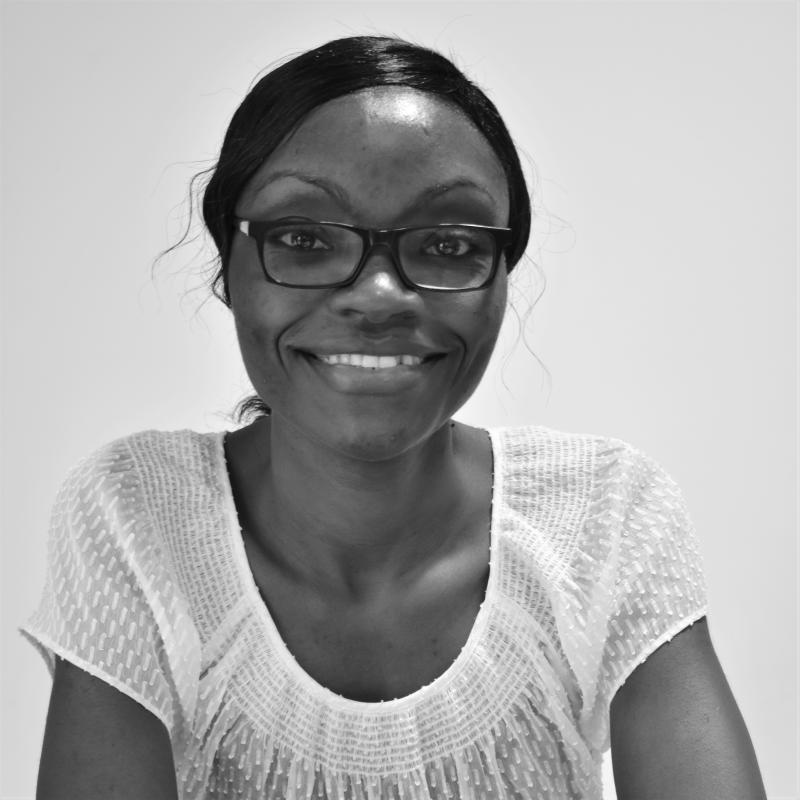
Florence Kirimi
 Email : FKirimi@kemri-wellcome.org
Email : FKirimi@kemri-wellcome.org Florence Kirimi joined the KEMRI-Wellcome Trust Research Programme in August 2016 as the Monitoring and Evaluation Officer for IDeAL. She is responsible for implementing the Monitoring and Evaluation activities of the Training Department, assisting the Head of Training in monitoring the Department’s activities on a regular basis, developing and maintaining the Department’s MIS and for collecting and analyzing different data in relation to the Department’s activities. She also prepares periodic reports on the training activities including those supported under IDeAL grant.
She holds a Masters’ Degree in Public Health with over 5 years’ experience in implementation of Monitoring and Evaluation for development projects which include developing M & E Plans, logical frameworks, output, monitoring and impact indicators for projects, participating in regular project reviews, Preparation of annual progress reports for feedback to donors and other stakeholders.


Dr. Alun Davies
Alun Davies has over 20 years experience in science education, health research and community engagement in Kenya: nine years as a science and senior teacher at urban and rural schools in Kenya; followed by eleven years as a researcher at KWTRP. Prior his current post, Alun managed an HIV research project in Kilifi, employing 50 staff at three sites to initiate HIV clinical trials. Alun’s current role in community engagement draws on a combination of his experience in education and health research towards facilitating engagement interactions between researchers and school students. Over the past six years, Alun has established a ‘Schools Engagement Programme’ (SEP) which facilitates interactions between researchers and up to 1000 students form 25 schools a year. The activities are aimed at promoting positive attitudes towards science among secondary school students; and promoting mutual-understanding between health researchers and the community. SEP has also enabled Kilifi students’ views to be incorporated into the Nuffield Council on Bioethics Working Party report on Ethical Issues for Research Involving Children. Alun’s current research explores ways of evaluating engagement with health research using a combination of quantitative, qualitative and participatory approaches.

IDeAL lays a strong emphasis on quality mentorship. All fellows have at least one mentor, for the low level training the supervisors with support from the IDeAL team largely act as the mentors. Each PhD fellow has two sets of mentors: the Studentship Monitoring and Advisory Committee (SMAC) which comprises of 3 people, two of whom are experts in the student’s area of study and a 3rd Party Monitor who provides pastoral support to the student. In addition all the students can access a further pool of 4 career mentors who have extensive knowledge and experience in the academic and research career landscape in the region.

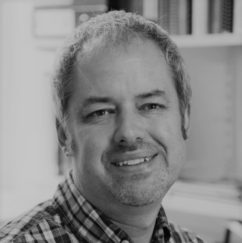
Dr. Julian Rayner
Affiliation(s):
Wellcome Trust Sanger Institute, UK
My research seeks to understand the interactions between Plasmodium parasites and human cells, in order to identify and prioritise new drug and vaccine targets. I focus on the stage of the parasite life cycle that infects human red blood cells, as it is this stage that causes all the symptoms and pathology of malaria.

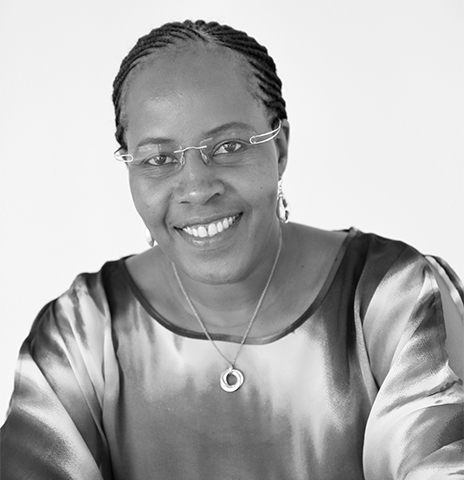
Dr. Dorris Kirigia
Affiliation(s):
World Health Organization, WHO, Congo
Doris completed her PhD in health economics and public health in 2009 from University of New South Wales, Australia and a Masters in Public Health 2004 from London School of Hygiene and Tropical Medicine, United Kingdom. Doris joined KEMRI-Wellcome Trust Research Programme in 2011 as Post-Doctoral Researcher. Her research interests include health equity, health systems research, and use of technology to deliver health care (e-Health) interventions, social determinants of health and Health in All Policies, health care financing and economic evaluation of health related interventions. Her current research involves evaluating different health financing mechanisms and expanding fiscal space for health to contribute to the current global and national debate on universal health coverage and health systems strengthening. Her other interests include engaging policy makers in finding evidence based innovative approaches to ensure those socially and economically disadvantaged population groups have access to quality and affordable health care. Doris is an expert advisor for WHO regional office on health equity and social determinants of health and is a member of different public health and health economics organisations.


Prof. Gilbert Kokwaro
Current Mentees
Past Mentees

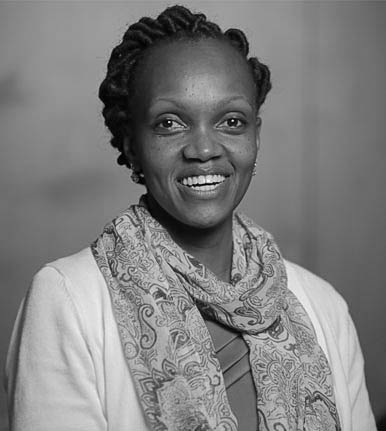
Dr. Evelyn Gitau
Current Mentees
Past Mentees
Dr. Evelyn Gitau is the Director of Research Capacity Strengthening. Under her direction, the division will continue to grow its signature fellowship program, the Consortium for the Advancement of Research Training in Africa (CARTA), and expand opportunities across the continent for African scholars to become great research leaders.
Dr. Gitau’s most recent role was as a program manager at the African Academy of Sciences, where she stewarded the Grand Challenges Africa at the Academy under the Alliance for Accelerating Excellence in Science in Africa (AESA) program. Prior to that, she was part of the team at the KEMRI-Wellcome Trust Program in Kilifi, Kenya, conducting research on developing biomarkers of disease among seriously ill children.
Dr. Gitau earned her PhD in Life Sciences from the Open University/Liverpool School of Tropical Medicine in the UK, investigating neurological infections in children living in malaria-endemic areas. She has more than 15 years of experience in medical research.
Among her awards and accomplishments include a 2015 appointment as a fellow of the Next Einstein Forum, where she is the ambassador for the development of Science, Technology, Engineering and Mathematics in Africa.
Dr. Gitau’s vast networks have brought her positions on numerous advisory boards for organizations advancing the agenda of research and evidence generation in Africa. These include the Independent Scientific Advisory Board (ISAB), Malawi-Liverpool-Wellcome Trust Clinical Research Programme College of Medicine, Blantyre, Malawi, University of Oxford (MSc International Health and Tropical Medicine) and and the Investment Committee Grand Challenges Canada. She will remain a member of the Steering Committee for Grand Challenges Africa.

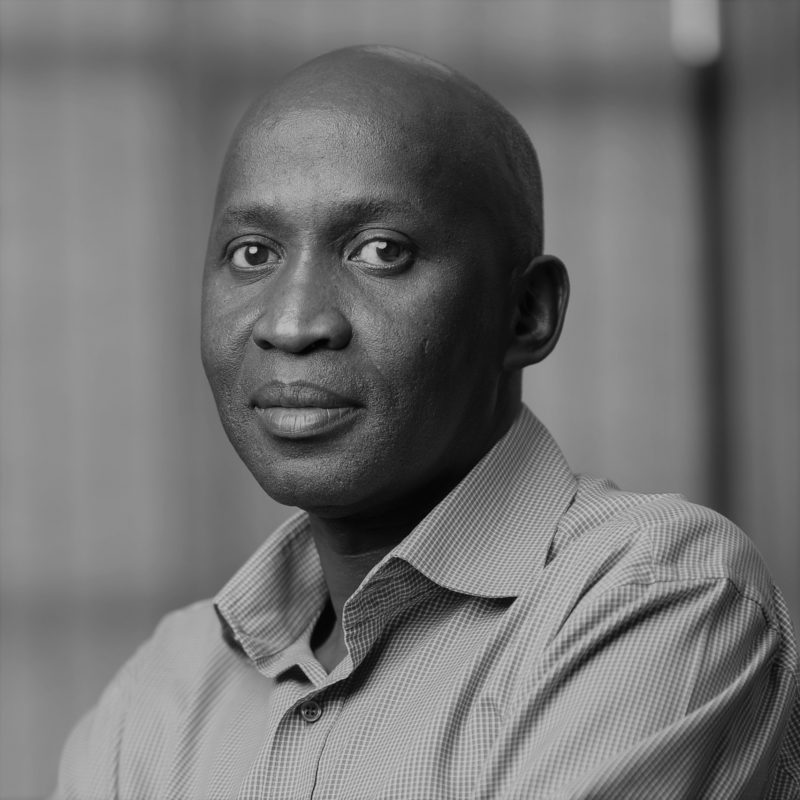
Prof. Olubayi Olubayi
Prof. O. Olubayi was born and raised in Kenya and educated at Rutgers University in the USA. Prior to joining Maarifa Education, he was the Vice Chancellor/President of the International University of East Africa (IUEA) in Uganda. He is a scientist and an expert on bacteria, education, learning, leadership and social-entrepreneurship.
As a scientist and eclectic scholar, Olubayi earned his Ph.D. on bacteria-and-plant cell interactions at Rutgers University, holds a research patent on the flocculation of bacteria and has published several scholarly articles in microbiology, biotechnology and social science.
As an educator he taught at Middlesex College and at Rutgers University for 16 years, and has taught critical thinking in the IUEA MBA program. He has been an advisor and consultant to government officials in Kenya and South Africa, and UNDP on matters of literacy, education, biotechnology, sustainable development and global citizenship.
As a social entrepreneur, Olubayi co-founded the non-profit Kiwimbi International and the widely respected American non-profit Global Literacy Project which sets up libraries worldwide and provides global service learning opportunities.
As a thinker, he is the author of the book “Education for a Better World,” and he is currently working on a book on “The Role of a Teacher.”

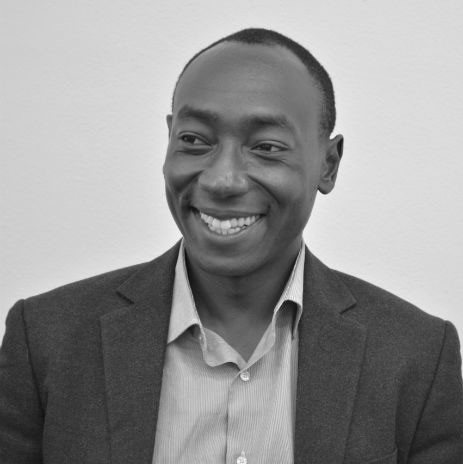
Dr. Ambrose Agweyu
Affiliation(s):
Initiative to Develop African Research Leaders, KEMRI – Wellcome Trust, Kenya
Ambrose is a Kenyan paediatrician and epidemiologist, based at the KEMRI-Wellcome Trust Research Programme in Nairobi. Working closely with the Kenya Ministry of Health in 2009, his early research involved conducting systematic reviews for a national exercise to adapt the World Health Organization pneumonia clinical practice guidelines using the GRADE methodology. Following this, Ambrose was invited to support similar exercises in Uganda and Rwanda. More recently, he was the principal investigator on a large pragmatic clinical trial comparing antibiotic treatments for childhood pneumonia. The findings of this study contributed towards a recent major revision in the Kenyan guidelines, and are likely to eventually influence practice in the region.
For his postdoctoral fellowship under the IDeAL Programme, Ambrose is analysing routine inpatient data collected from an existing clinical information network of 14 Kenyan hospitals to identify high risk groups of children with pneumonia as potential target populations for future interventional studies.
As a member of the core team brought together by the Government of Kenya to drive the Kenya Action Plan for the Prevention and Control of Pneumonia (KAPP), Ambrose is also actively involved in advocacy on how best to implement prevention and care for childhood pneumonia and campaigning for greater attention to be paid to this major childhood killer.


Dr. Georgina Murphy
Georgina is a Postdoctoral Researcher in health services epidemiology. Her research is currently focused on essential health services for sick newborns in Kenya and evaluating task-shifting as a means to improving service delivery. Georgina is a Research Associate at Green Templeton College and a consultant for the Naji Foundation. Her PhD at the University of Cambridge focused on the epidemiology of non-communicable diseases in rural Uganda.

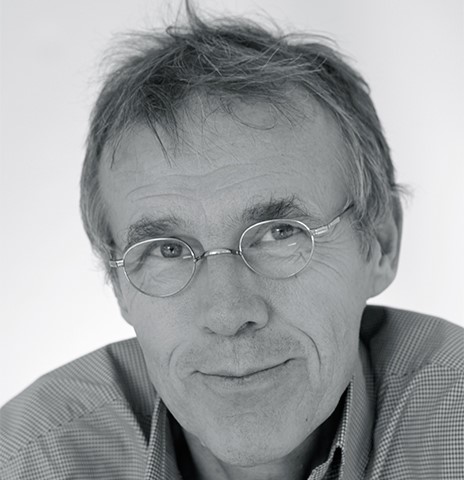
Prof. Eduard Sanders
 Email : ESanders@kemri-wellcome.org
Email : ESanders@kemri-wellcome.org Eduard Sanders is an Associate Professor of Tropical Medicine and Global Health at the University of Oxford, and is based in Kilifi, Kenya. He is the principal investigator of several observational studies involving mostly men who have sex with men (MSM) and female sex workers (FSW) in Kilifi, and co-recipient of the SANTHE grant. His interest in diagnosing acute HIV infections was inspired by the many MSM who sought health care prior to seroconversion in coastal Kenya, and the opportunity this presents for reducing onward HIV-1 transmission. He currently leads ongoing studies on the utility of clinical algorithms to identify and diagnose young adults with acute HIV infection at various health facilities in Kenya, enabling early treatment, counselling interventions, and assisted partner notification.


Dr. Symon Kariuki
Affiliation(s):


Prof. Shane Crotty
Affiliation(s):
La Jolla Institute, San Diego, CA, USA
Shane Crotty, Ph.D., and his team study immunity against infectious diseases. They investigate how the immune system remembers infections and vaccines. By remembering infections and vaccines, the body is protected from becoming infected in the future. Vaccines are one of the most cost-effective medical treatments in modern civilization and are responsible for saving millions of lives. Yet, good vaccines are very difficult to design, and very few new vaccines have been made in the past 10 years. A better understanding of immune memory will facilitate the ability to make new vaccines.
Most vaccines work because they generate antibodies. Dr. Crotty recently made a seminal finding in how this process occurs (Science 2009). Dr. Crotty said it has been well established that antibody production is a multi-step process that involves interactions between several cellular players, key among them CD4 “helper” T cells, which are disease-fighting white blood cells that tell other cells to produce antibodies in response to infections. “There were different flavors of these CD4 helper T cells and, for many years, we, in the scientific community, thought that one variety of CD4 helper cells (known as Th2 cells) triggered the antibody process. But about 10 years ago, scientists realized this was incorrect and that there must exist a new variety of CD4 helper T cell that initiated antibody production. It was named Tfh.”
Dr. Crotty’s team set out to understand the inner workings of the Tfh pathway. “We discovered that the BCL6 gene was like an on and off switch, or master regulator, in this process. In a series of experiments, we showed that if you turn on this gene, you get more CD4 T helper cells (the Tfh type) and it’s those cells that are telling the B cells to produce antibodies,” he said. The laboratory is now internationally recognized as a leader in Tfh cell biology, having identified the central role of BCL6 in Tfh cells, and elucidated critical aspects of Tfh cellular and molecular biology in animals and humans.
The field of Tfh cell biology has grown rapidly since the seminal publications in 2009, and work from many labs has shown that Tfh cells are important regulators of autoimmune diseases and allergies, in addition to their critical roles in immunity to viruses and bacteria.
Dr. Crotty has a major focus studying human immune responses to vaccines. His lab is hard at work on candidate HIV vaccines with the CHAVI-ID consortium.

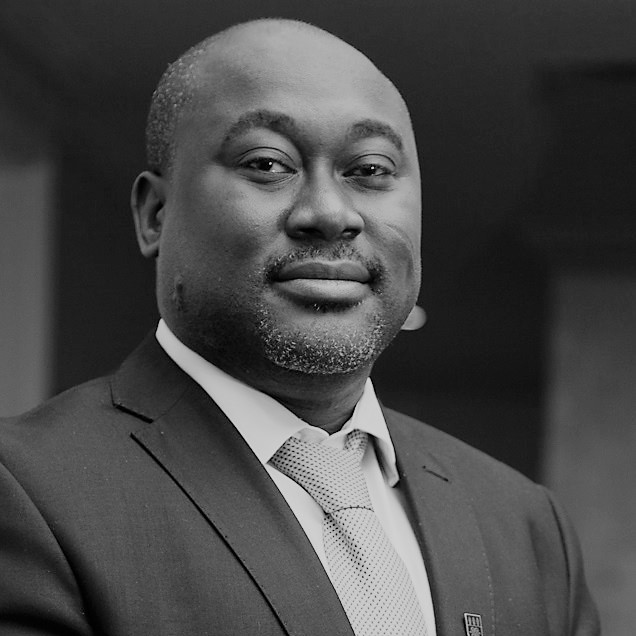
Dr. Gordon Awandare
Dr. Awandare’s research focuses on the pathogenesis of Plasmodium falciparum malaria in children. There are two main branches of investigations, namely the role of the host immune response on one hand, and the mechanisms used by the parasite to propagate itself and cause disease. From the perspective of the host, we have been investigating the production of inflammatory mediators and the relationship between genetic variation in innate immune response genes and susceptibility to severe malaria in children. Our research on the Plasmodium parasite is aimed at gaining a better understanding of the mechanisms used for invasion of red blood cells. Therefore, a substantial aspect of our research efforts focus on characterizing the sialic acid-independent pathways of invasion and identifying novel receptors and ligands involved.


Prof. Tom Williams
Current Mentees
Past Mentees
Affiliations:
Tom is Professor of Haemoglobinopathy Research at Imperial College, London. Tom has worked in Kilifi since May 2000, where he now directs a programme of human genetic research with a focus on polymorphisms of the red blood cell. He obtained his medical degree at Westminster Medical School in the University of London in 1985 and subsequently trained in Paediatrics and Tropical Medicine at a range of London hospitals including Westminster Children’s Hospital, University College, the Hospital for Tropical Diseases and Imperial College. He obtained his PhD on the genetics of malaria resistance in children, from the University of London in 1999. He has published extensively on the burden and clinical consequences of red cell genetic disorders and their relationship with malaria protection, questions which he studies using both laboratory-based and epidemiological approaches.

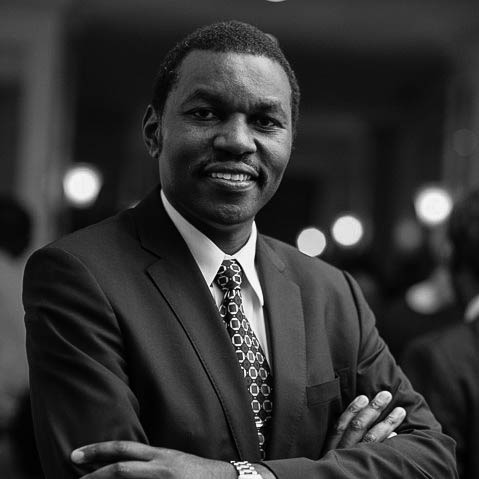
Prof. Thumbi Ndung’u
Thumbi Ndung’u is both the SANTHE Programme Director and the Director of the HIV Pathogenesis Programme (HPP). He also heads a laboratory at AHRI (the African Health Research Institute) – previously known as K-RITH (the KwaZulu-Natal Research Institute for Tuberculosis and HIV), which is based at the University of KwaZulu-Natal in Durban, South Africa. Ndung’u is interested in understanding antiviral immune mechanisms and viral adaptation in HIV-1 subtype C infection as a pathway to vaccine development. The development of a safe, affordable and efficacious HIV-1 vaccine is perhaps the defining scientific challenge of our time. Rational vaccine design will require a better understanding of immune correlates of HIV-1 protection or control. His laboratory focuses on individuals who remain HIV negative despite possible repeated exposure to the virus and those infected who achieve durable viral control without the help of antiretroviral therapies. These individuals may hold the key to vaccine development or novel therapies.


Prof. Charles Newton
Charles Newton qualified from the University of Cape Town, South Africa, with postgraduate training in Paediatrics in Manchester and London, United Kingdom. As a lecturer at University of Oxford, he went to Kilifi Kenya in 1989, to help set up a unit to study severe malaria in African children. Thereafter he spent 2 years as a Post-doctoral fellow at Johns Hopkins, USA; studying mechanisms of brain damage in central nervous system infections. He completed his training in Paediatric Neurology at Great Ormond Street Hospital, UK. In 1998 he was awarded a Wellcome Trust Senior Clinical Fellowship at University College London, to return to Kilifi, to study CNS infections in children. He conducts research on CNS infections in children; epidemiological studies of epilepsy and neurological impairment; tetanus, jaundice and sepsis in neonates. He is particularly interested in behavioural comorbidity of neurological conditions in children. In 2011 he took up a professorship in Psychiatry at the University of Oxford to conduct studies of Neurodevelopmental Disorders and Epilepsy in Africa and Autism in the United Kingdom and Lithuania

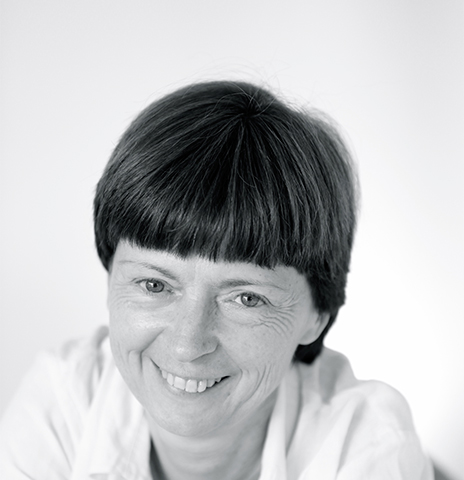
Dr. Alison Talbert
Affiliation(s):
Alison Talbert is a paediatrician with research interests in malnutrition, infection and infant and young child feeding. She moved to Kilifi in 2005 from Tanzania where she collaborated with Liverpool School of Tropical Medicine on tick-borne relapsing fever control using insecticide treated bed nets. In Kilifi she has worked on malnutrition studies led by Professor Kath Maitland and Dr. Jay Berkley. She has been an investigator on a study of endotoxinaemia in malnutrition and malaria, and on clinical trials of an outpatient treatment strategy of ready to use supplementary food in moderate malnutrition (Modmal) and omega-3 PUFA enriched ready to use therapeutic food in treatment of severe acute malnutrition (NjuguPlus). She is now leading a community based study of breastfeeding practices and advice given to first time mothers in Jaribuni Division.

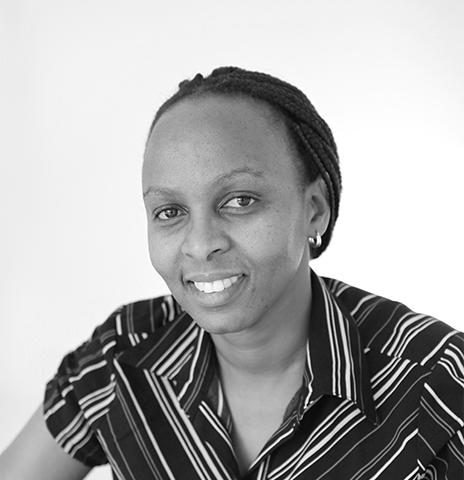
Dr. Eunice Nduati
 Email : ENduati@kemri-wellcome.org
Email : ENduati@kemri-wellcome.org I joined the KEMRI Wellcome Trust Research Programme (KWTRP) in Nairobi working on antimalarial drug resistance. In 2005 I transferred to Kilifi to pursue my interest in the immunology of infectious diseases under the Biology and Pathology of the Malaria Parasite (BiolMalPar) Ph.D. training programme. This was a collaborative programme with time spent between the UK and Kenya. My thesis was on understanding host immune responses, specifically B-cell regulation in malaria. On returning to Kenya, I was awarded 6 months funding by BIOMALPAR/European Molecular Biology Laboratories (EMBL) a European Union Initiative to understand the role of soluble factors, such as the B cell activating factor (BAFF) on B-cell differentiation and function. I then successfully obtained a Wellcome Trust Training Fellowship, which supported my work on B-cell regulation in HIV infection and exposure. The aim of this work was to understand whether exposure to HIV virus or antigens, antiretroviral drugs and/or an altered placental cytokine milieu, in utero, affects the developing immune system in infants born to HIV infected mothers but are themselves not infected. In HIV infection, I have been involved in understanding B cell phenotypic and functional changes in HIV infected children. Currently I hold a mid-career fellowship with the IDeAL program at KWTRP and working within the International AIDS Vaccine Initiative (IAVI)-Vaccine Immunology Science and Technology for Africa (IAVI-VISTA) consortium, which has established longitudinal HIV cohorts. My work involves understanding adaptive immune responses, specifically T cell and B cell functions in early HIV infection and how this may impact on subsequent disease outcomes.

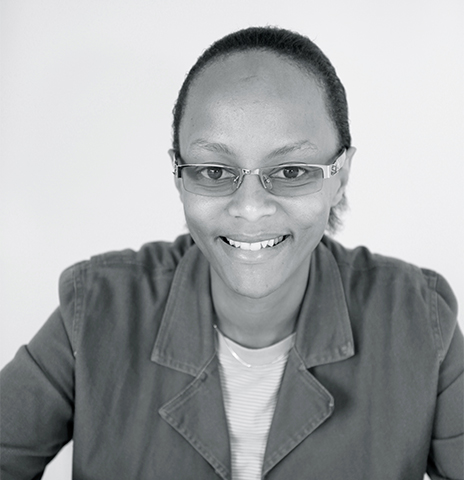
Dr. Patricia Njuguna
Affiliated Institution:
Patricia is Paediatrician based in Kilifi, Kenya. She graduated with a Masters in Medicine (Paediatrics and Child Health) (University of Nairobi) in 2006. She has worked in the area of neurology (Neurodiability in the community) under Prof Charles Newton from 2001-2003. Her Master’s thesis was an audit of management of coma in the national referral hospital. From 2006 she has been involved with the Clinical Trials Facility working in the area of malaria vaccines. This includes the GSK candidate vaccine – RTS,S. Her other interests include mechanisms that governments and other agencies use to determine the uptake of various vaccines in different parts of the world. She is a member of the Brighton collaboration, the Kenya Medical Association and the Kenya Paediatric Association. Patricia is author or co-author of 8 publications in malaria and neurology.

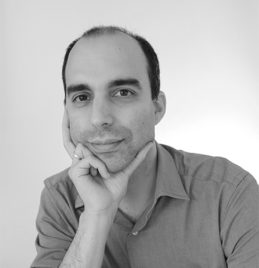
Prof. Philip Bejon
 Email : PBejon@kemri-wellcome.org
Email : PBejon@kemri-wellcome.org  Phone : +07-5555-565
Phone : +07-5555-565 I first came to Kilifi in 2002 to conduct Phase I and IIb clinical trials of a candidate malaria vaccine based on viral vectors. I returned to the University of Oxford in 2006 to complete specialist clinical training as a clinical lecturer, and then was appointed as a senior fellow in the NIHR Oxford Biomedical Research Centre. These posts allowed me to remain active in malaria research, leading further trials of GSK’s candidate malaria vaccine “RTS,S”, and as a member of the Malaria Vectored Vaccine Consortium funded to test viral vectored malaria vaccines in several sites in Africa including Kilifi. An MRC Clinician-Scientist Fellowship, allowed me to return to be resident full-time in Kilifi in 2013, and I became Executive Director of the KEMRI-Wellcome Trust Research Programme in September 2014.



